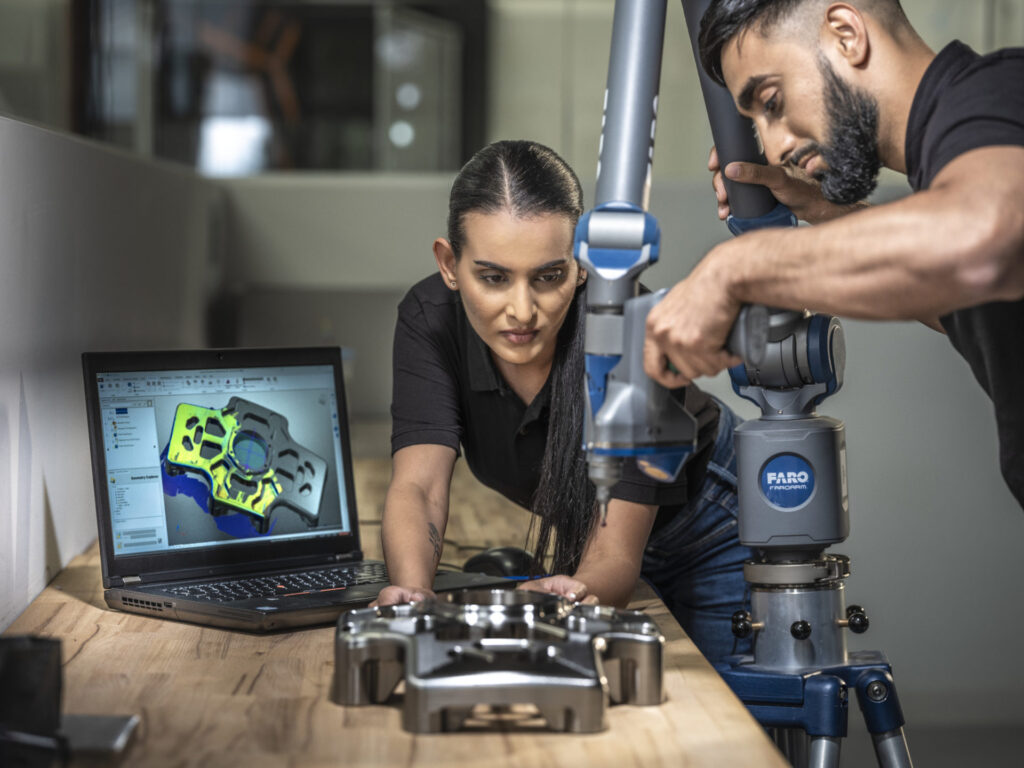
The art of mentorship is ancient. The concept dates back to Homer’s Odyssey, in which a character named Mentor is entrusted with the care of Odysseus’ young son while he fought in the Trojan War. Humans enter the world helpless and depend on others to make it to adulthood. Over a lifetime, guidance can have many sources, from caring teachers or bosses to chosen families. People learn, grow, and thrive through relationships.
At Autodesk, we deeply value mentorship in its many forms. Underpinning mentorship is the idea that it can be found everywhere with just about anyone. You don’t need to have a formal title to mentor someone and you don’t need to be an official mentee to learn from another person. At all stages of their careers, people are works in progress learning from one another.
To invest in this broader idea of mentorship, Autodesk directly funds mentorship programs where employees can be matched with mentors in relevant formats—including short-term mentoring, group mentorship, and one-on-one opportunities.
Internships with a Mentor Spin
Autodesk’s global internship programs expose students to real-life work and projects that supplement their academic training. Within these programs, interns also have access to Autodesk’s internal mentorship program. This means they can identify a mentor (or mentoring group) based on their personal values, skills, or development goals. It’s not a secret that we’re hoping to recruit some of these promising students into careers, which means our internal mentors have a big job on their hands.
Most recently, the Autodesk Tech Program worked with students from four Historically Black Colleges and Universities (HBCUs), including Morgan State University, Howard University, North Carolina A&T University, and Morehouse College. Computer science and engineering students worked closely with Autodesk employees on projects ranging from robotics security to manufacturing workflows. Throughout the experience, students gained important skills applicable to their future jobs through collaborating closely with employee mentors. This mentor-mentee relationship lets students learn from people further along in their careers, an excellent way to explore different options and choose the career path that feels right. At the end of the internship, students had the chance to present their project outcomes to executives at Autodesk, showcasing the diligent work they’ve done.
Researchers Help at Howard
Mentorship experience isn’t relegated to just students and employees. Autodesk also collaborates closely with university professors to design internship processes that will work best for incoming students. This year, two directors from the Autodesk Research team, Anthony Ruto and Alex Tessier, were on the Industry Advisory Board (IAB) for Howard University’s Electronic Engineering & Computer Science (EECS) department, tasked with supporting curriculum development and the internship experience.
Dr. Ahmed Rubaai, professor and chair of EECS, was determined to prepare students leaving the program with industry-relevant skills. The Autodesk researchers provided input on the expected roles students would play as innovators in an industrial research context. Rubaai expressed sincere thanks for the researchers’ work on the board. “Your ideas, input, and enthusiasm were most helpful and have assisted us in making valuable improvements to the EECS academic and education programs at Howard University,” he says. “Your work with Autodesk I&D (Inclusion and Diversity) to advocate for Howard University, finding opportunities to contribute to EECS’ success, significantly increases the participation of underrepresented students in computer science and engineering.” The EECS department wove this perspective directly into their curriculum, demonstrating the mentor-like synergy between industry and academia.
Mentorship as an Investment
Autodesk views mentorship as an investment in the growth of both mentors and mentees. Whether it’s employees seeking mentorship or executives offering mentorship as industry experts, it’s all a way to progress personally and professionally. And no one moves forward alone. Instead, we move in community by giving and receiving support, creating something larger than the sum of its parts.